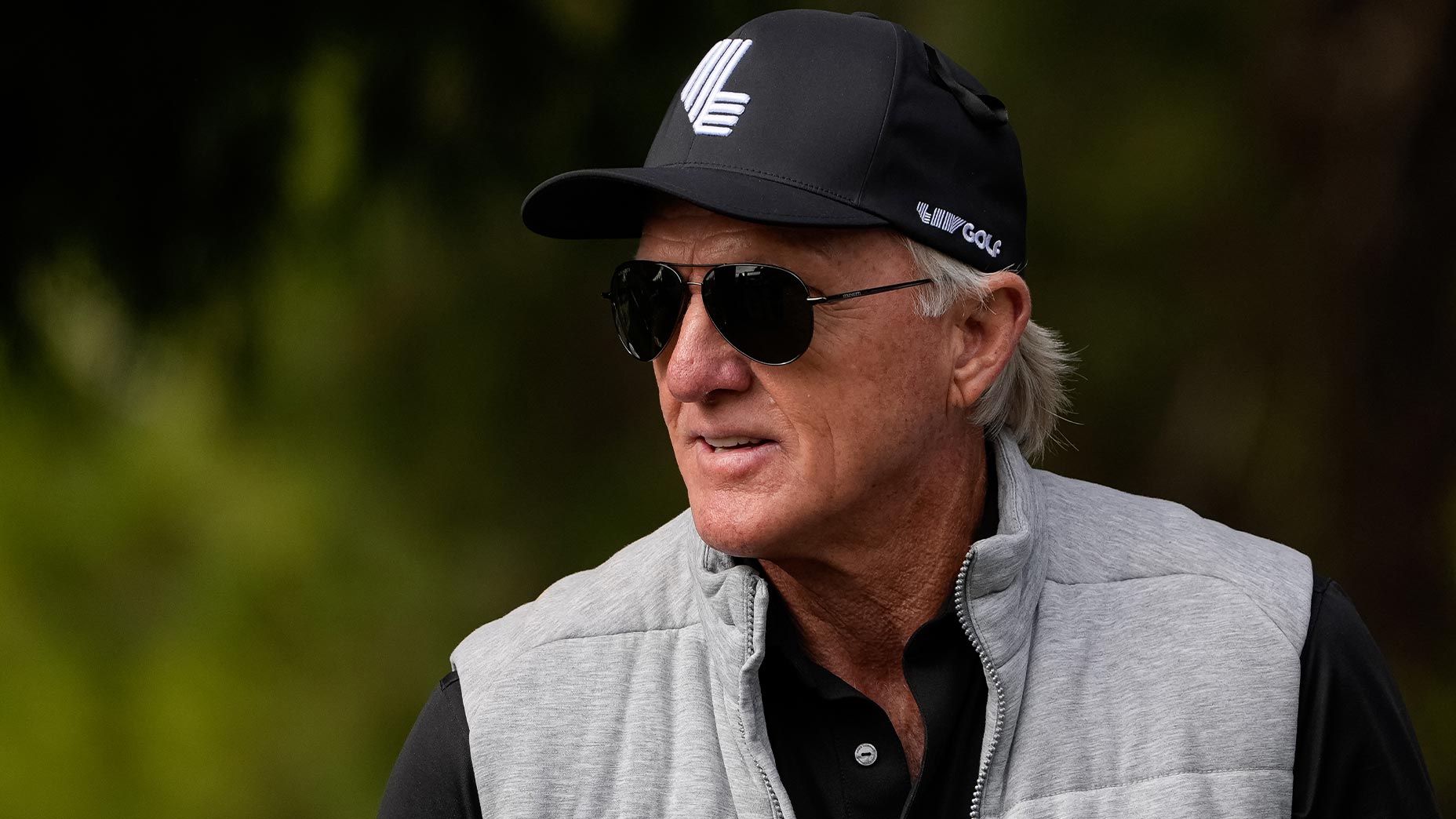


Greg Norman and LIV Golf are in the market for another streaming partner.
Asanka Ratnayake/Getty Images
Welcome back to another extended edition of the Hot Mic Newsletter, GOLF’s weekly send covering all things golf media from me, James Colgan. This week, we’re talking about the surprising end of LIV’s streaming partner. As always, if you’d like to be the first to receive exclusive insights like these directly from me, click the link here to subscribe to our free newsletter send.
As it turns out, Caffeine TV needed a jolt much bigger than LIV Golf.
On Wednesday morning, the upstart sports streamer with funding from the VC giant Andreessen Horowitz and the Murdoch family abruptly closed, citing lagging profits just months after securing LIV’s digital broadcast rights.
“All good things come to an end,” a message on the Caffeine TV website read. “We’re at the point where we are still not quite profitable, so we’ve made the decision to end the service as of June 26th as we figure out our next steps.”
The announcement marks the latest jarring development in an unfriendly media rights environment for LIV. The league’s events, aired on the CW in a revenue-sharing agreement, have suffered dreadfully low TV audiences since the league signed a two-year pact with the network at the beginning of 2023, and the streaming world has not been much friendlier, as evidenced by Caffeine TV’s sudden closure.
LIV had very little to do with Caffeine TV’s financial situation, which was tied primarily to the startup’s struggles to properly chart its profits with investors after a 2018 seed round reportedly worth $150 million. (The downside of big-time investing partners is that they often expect big-time returns.) Still, the news speaks to a central issue with LIV’s profit-generating efforts for its financiers: Hugely profitable rights deals are the oxygen of the pro sports business, and LIV doesn’t have them. Without a robust media rights agreement to pay its bills, it will be hard for LIV to ever be more than a loss leader for the Saudi PIF.
For these reasons, LIV’s decision to enter the marketplace in pursuit of a streaming partner in the summer of 2023 was seen as a considerable upside play. The streaming rights business in pro sports was (and is) booming, with hugely profitable giants like Netflix and Amazon wading into what is believed to be the entertainment industry’s most profitable market. If LIV could nab one of the big partners, or even a smaller deal with a premium streamer like Apple, it could signal to the linear TV business and the world that public perceptions were changing.
Instead, LIV signed a deal with Caffeine TV that stunned many in the golf TV industry. Few people had heard of the streamer when LIV announced the deal, and those who did knew of it primarily as a home for niche sports like the World Surfing League. Those feelings were only amplified when bizarre recording metrics from the first string of LIV events held on Caffeine TV appeared to show 2 million viewers watching LIV’s Jeddah event, or roughly the size of early-week U.S. Open telecasts on NBC.
Caffeine’s closure leaves LIV Golf without a paid streaming rights partner in the United States with six events still remaining in its 2024 campaign. The good news for LIV is that the league is not without a streaming option. LIV brought its streaming rights direct-to-consumer in 2022 and 2023 with a subscription-based product on YouTube and through the LIV Golf app, and has continued to use those services after inking the Caffeine TV deal.
The future of the media rights business remains uncertain for LIV, even as the league’s legitimately innovative golf TV production continues to improve unburdened by the commercial weight of most other pro golf telecasts. LIV could find itself in an advantageous position in an optimist’s view of the current landscape, especially if the NBA reshapes the industry by inking an expected $2.5 billion/year agreement with NBC. Warner Bros. Discovery, Fox, or some other major streamer could find itself suddenly desperate for sports rights in that scenario, and LIV would be one of the few cheaper options readily waiting in the wings.
But a more realistic view of things involves remembering the first rule of sports TV rights: You are the company you keep.